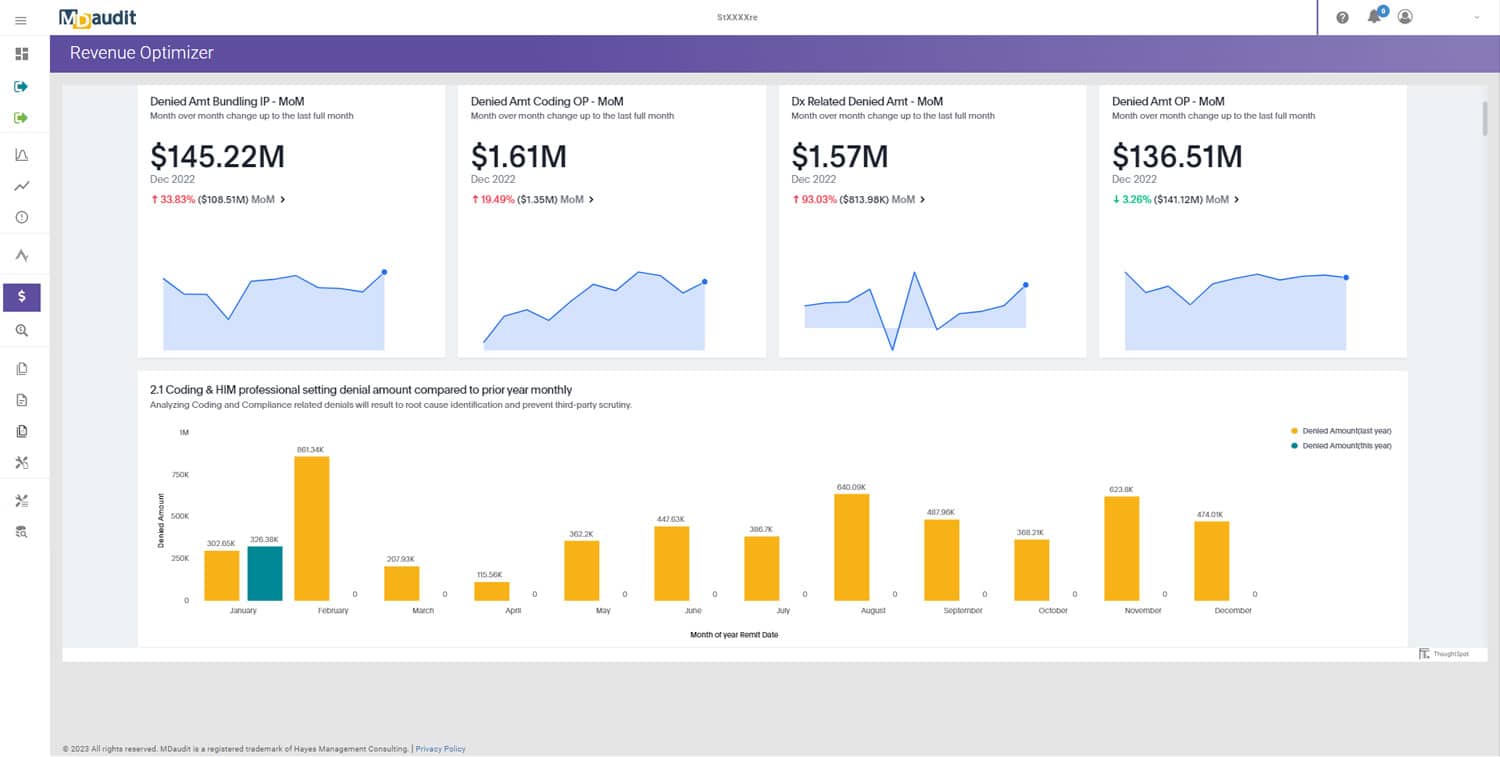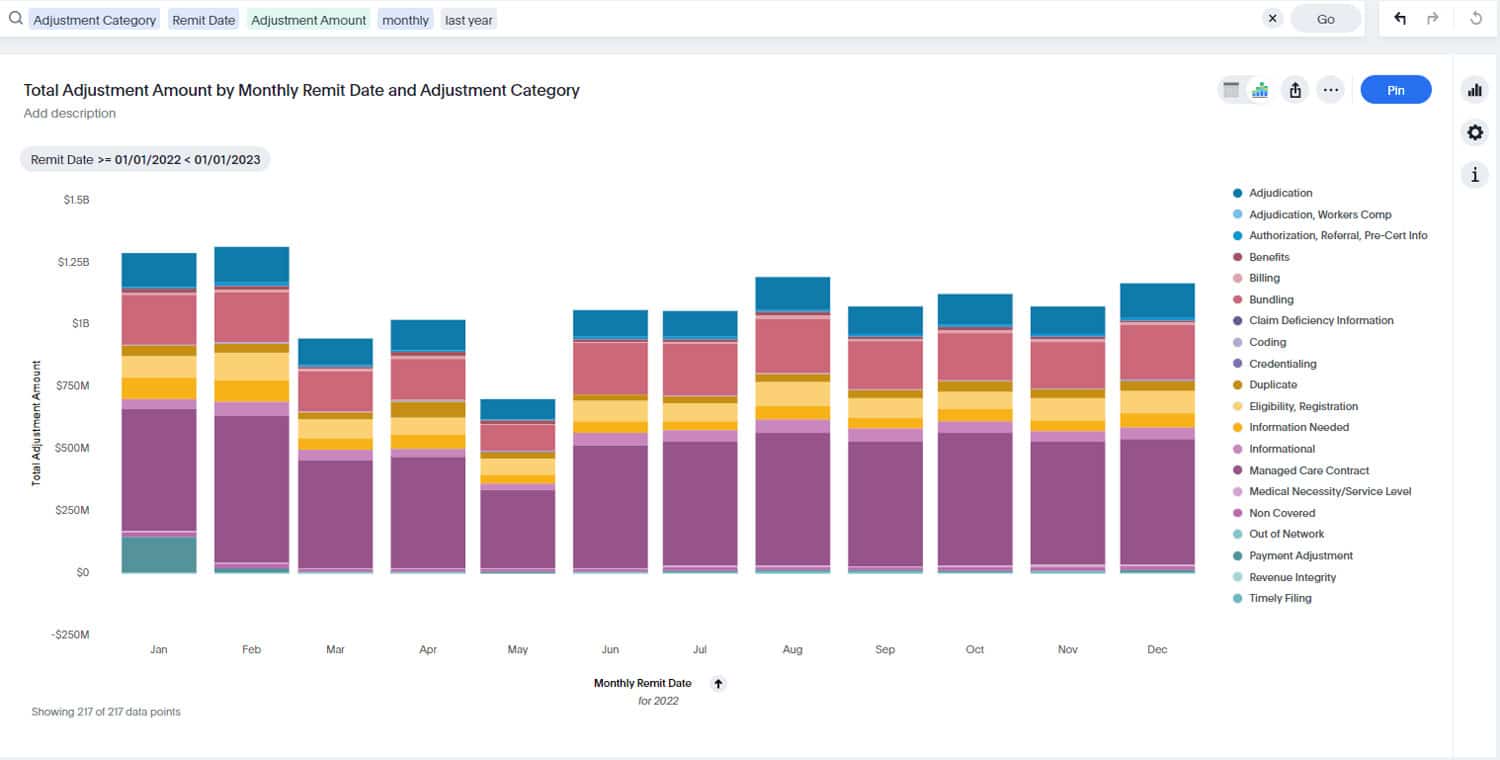Healthcare compliance leaders are navigating one of the most complex regulatory landscapes ever seen. Payer policies shift weekly, audit volumes climb, and documentation demands grow across service lines. Traditional compliance programs, built on manual reviews and retrospective analysis, can’t keep pace. To meet this challenge, organizations are turning to behavioral artificial intelligence (AI)—technology that learns from how compliance teams work, helping them make smarter, faster, and more consistent decisions.
At MDaudit, we believe AI should amplify human expertise, not replace it. Our AI-Powered Technology is designed to work alongside compliance, HIM, and revenue integrity professionals—automating repetitive tasks, uncovering hidden risks, and guiding teams toward higher-impact actions. This post explores how behavioral AI reshapes compliance operations, enabling smarter decisions that protect both revenue and integrity.
Why Compliance Needs a Behavioral Approach to AI
Beyond Automation: Toward Augmented Decision-Making
For years, AI in healthcare has been synonymous with automation—flagging anomalies, predicting denials, and reducing manual workloads. Behavioral AI builds on that foundation by analyzing how compliance teams make decisions. It looks at trends in their workflows, identifies patterns in actions that lead to positive outcomes, and offers context-aware recommendations to replicate those results across the organization.
Instead of delivering static alerts, behavioral AI learns dynamically. It asks: Which audits lead to the most recoveries? Which corrective actions actually prevent repeat denials? Which coders or providers respond best to specific education types? By studying these patterns, AI enhances—not replaces—human decision-making.
Why Human Judgment Still Matters
Compliance work involves nuances that no algorithm can fully capture. A claim may appear compliant numerically yet fail contextual review. Behavioral AI respects this complexity. It is designed to enhance, not override, professional judgment. Embedded within MDaudit’s Audit Workflows, it provides auditors with real-time insights while leaving the ultimate decision in human hands. The technology becomes a second set of eyes, guiding attention rather than dictating conclusions.
How Behavioral AI Operates in MDaudit
Intelligent Prioritization
In large organizations, compliance teams face hundreds of concurrent audits. Behavioral AI evaluates provider performance, payer behavior, and denial trends to automatically prioritize high-risk areas. By surfacing “next best actions,” it ensures audit time is spent where it has the greatest impact—preventing revenue leakage before it occurs.
Adaptive Learning
Every completed audit, denial resolution, and coder correction strengthens the AI model. MDaudit’s system continuously refines its understanding of which actions yield optimal compliance outcomes. Over time, it mirrors the intuition of the most effective auditors, guiding newer staff toward similar results and raising the overall performance baseline.
Context-Aware Insights
Unlike rule-based systems, behavioral AI tailors insights to context:
- When an auditor reviews a claim, the system highlights comparable cases that previously triggered payer disputes.
- When a coder’s documentation diverges from expected norms, the platform prompts a targeted review.
- When a compliance officer investigates denial spikes, predictive insights connect root causes to team behavior, not just coding data.
These contextual prompts transform passive data into actionable intelligence.
Redefining the Auditor Experience
Less Noise, More Clarity
Traditional systems often inundate auditors with low-priority alerts. Behavioral AI filters the noise by weighting each alert based on relevance, risk, and historical outcomes. The most critical items rise to the top, enabling auditors to focus on issues that truly affect compliance and reimbursement.
Faster Insights, Better Outcomes
By automating repetitive reconciliation and reporting steps, behavioral AI shortens audit cycles. Auditors spend more time on interpretation, root-cause analysis, and education. The shift from manual processing to intelligent assistance creates both efficiency and engagement—teams can see the tangible effect of their decisions in real time.
Personalized Dashboards
Different roles require different perspectives. Compliance leaders monitor risk by payer or region, HIM managers track coder performance, and finance executives focus on denial cost and recovery. Behavioral AI within MDaudit tailors dashboards automatically to each role, ensuring every user sees the data that drives their decisions.
Building Confidence in AI-Driven Compliance
Transparent Decision Logic
Trust is critical in compliance. MDaudit’s behavioral AI provides visibility into every recommendation. It displays the underlying factors—prior denial history, payer policy shifts, and audit findings—allowing users to validate and understand why a suggestion is made. Transparency builds confidence, turning skepticism into partnership.
Governance and Oversight
AI guidance works best when aligned with strong governance. Organizations can set review thresholds, escalation paths, and validation audits to ensure AI suggestions are reliable. This keeps humans firmly in control while benefiting from the system’s analytical reach. Technology doesn’t replace governance—it strengthens it.
Data Privacy and Security
Compliance data includes protected health information (PHI), so privacy is nonnegotiable. MDaudit operates within a secure, HIPAA-compliant cloud environment. Role-based access controls ensure that users only see what they need, maintaining confidentiality while enabling efficient collaboration.
Real-World Use Cases
Predictive Audit Planning
Rather than randomly selecting providers or claims, behavioral AI identifies where risk is most likely to occur. A compliance leader can plan audits around predictive indicators such as coding anomalies, unusual volume patterns, or historical denial rates—turning audit planning into a data-driven process.
Real-Time Coder Coaching
Connected to Coder Workflow, behavioral AI recognizes when coders repeatedly encounter similar audit findings. It recommends focused education modules or sends contextual reminders during the coding process. Over time, this approach reduces repeat findings and strengthens accuracy.
Denial Prevention Through Behavioral Insights
AI doesn’t just predict denials—it learns how teams prevent them. If a specific corrective action consistently reduces recurrence, the system recommends that the intervention be applied across similar claims. This behavioral modeling transforms successful human strategies into organization-wide best practices.
Provider Engagement with Actionable Feedback
Behavioral AI enhances provider relations by reframing compliance data as constructive guidance. Instead of punitive reports, physicians receive clear, behavior-based insights—such as documentation patterns linked to recurring denials or audit findings—promoting collaboration and education rather than resistance.
Implementing Behavioral AI in Compliance Operations
- Assess Readiness
Evaluate existing compliance workflows to identify where manual decision-making slows progress or introduces bias. - Centralize Data
Integrate audit results and denial data into MDaudit’s Audit Workflows, providing a unified source of truth. - Define Metrics for Success
Determine measurable goals such as cycle time reduction, accuracy improvement, and denial prevention. - Launch a Controlled Pilot
Begin with one domain—such as inpatient coding audits—and benchmark outcomes before scaling. - Refine and Expand
As behavioral models learn, they expand their application across revenue integrity, HIM, and billing compliance. - Sustain Through Oversight
Maintain an AI governance framework with continuous monitoring, retraining, and user feedback loops.
Measuring the Impact
Behavioral AI’s success is measured not just by time saved but by the quality of decisions it enables. Key metrics include:
- Reduction in audit cycle time
- Increase in first-pass audit accuracy
- Decline in repeat denial categories
- Improvement in coder and provider education outcomes
- Growth in audit coverage of high-risk providers
Organizations using MDaudit’s AI-powered tools consistently report measurable gains in audit efficiency and compliance precision. Over time, these improvements compound, creating a culture of proactive prevention rather than reactive correction.
The Future of Behavioral AI in Compliance
Behavioral AI represents a shift from static automation to intelligent augmentation. It doesn’t just flag errors—it teaches systems and people to recognize and prevent them. As payer requirements evolve and healthcare grows more complex, this adaptive intelligence becomes essential.
In the near future, behavioral AI will further integrate with predictive denial analytics and Revenue Optimizer, connecting compliance insights directly to financial outcomes. Teams will move beyond managing risk—they will anticipate it, measure its cost, and eliminate it before it reaches payers.
Compliance will no longer be a reactive safeguard; it will be a strategic asset.
Taking the Next Step
Behavioral AI is already transforming how compliance, coding, and revenue integrity teams collaborate. By embedding intelligent, adaptive guidance into everyday workflows, MDaudit helps organizations stay compliant, efficient, and financially resilient.
To see how behavioral AI can strengthen your compliance operations, visit our AI-Powered Technology page or schedule a conversation through our demo request page.








